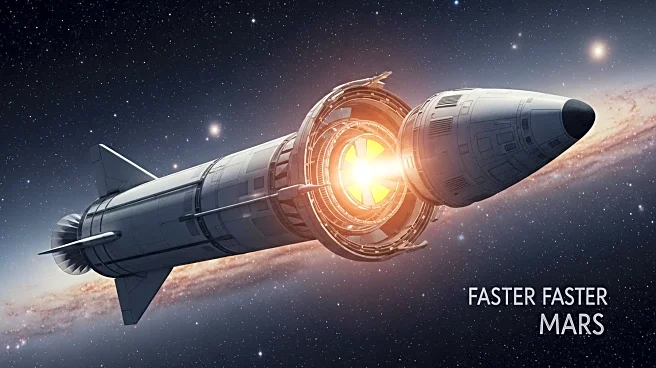What is the story about?
What's Happening?
Researchers are developing a centrifugal nuclear thermal rocket (CNTR) that could revolutionize space travel by using nuclear fission of liquid uranium to heat propellant. This technology promises to double the efficiency of previous nuclear thermal designs and quadruple the thrust of chemical rockets. The CNTR could enable faster and safer interplanetary missions, reducing travel time to Mars and beyond.
Why It's Important?
The development of nuclear-powered rockets could significantly enhance space exploration capabilities, allowing for quicker and more efficient missions to Mars and other distant destinations. This technology addresses the health risks associated with prolonged space travel by shortening mission durations. If successful, CNTR could transform spaceflight, making it more routine and expanding the possibilities for human exploration of the solar system.
Beyond the Headlines
The use of nuclear propulsion in space raises ethical and safety concerns, particularly regarding the handling and disposal of nuclear materials. While CNTR offers promising advancements, it must overcome technical and regulatory hurdles before becoming a viable option for space missions. The potential for extracting propellant from celestial bodies during missions also opens new avenues for resource utilization in space.

















